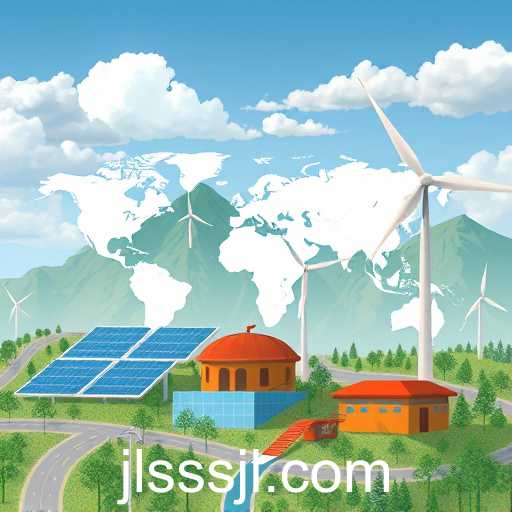An exploration of the global push towards renewable energy amidst pressing climate challenges and policy shifts.
As the world grapples with the escalating impacts of climate change, the global community has seen a substantial shift towards renewable energy. Governments and businesses are increasingly investing in sustainable energy solutions, driven by both necessity and innovation. This transition is reshaping economies and influencing international relations as countries redefine their energy strategies.
Recent reports indicate that renewable energy sources such as solar, wind, and hydroelectric power have seen unprecedented growth over the last decade. Countries like China and the United States are leading the charge, investing billions in infrastructure to support green energy initiatives. This trend is not only limited to the traditional industrial powers. Emerging economies like India and Brazil are also integrating renewables into their energy mix, aiming to reduce their carbon footprints and ensure long-term economic resilience.
The push for clean energy is further amplified by global policy frameworks such as the Paris Agreement, which seeks to limit global warming to well below 2 degrees Celsius. Nations are under mounting pressure to meet their commitments, spurring a race to develop cutting-edge technologies that make renewables more efficient and accessible.
Innovation continues to drive the sector forward, with significant advancements in battery storage and grid technology. These innovations are critical in overcoming the intermittent nature of renewable resources and ensuring a stable transition from fossil fuels. Moreover, public awareness about the environmental and economic benefits of renewable energy is growing, leading to increased consumer demand for sustainable products and services.
However, challenges remain. The transition to renewable energy requires significant investment and infrastructural changes, which can be daunting for some countries. There's also the geopolitical aspect, as the shift in energy dynamics affects global relations and dependencies. As countries become energy independent, traditional fossil fuel exporters may face economic and political pressure, leading to shifts in global power structures.
In conclusion, as we move forward, the dynamics of the renewable energy landscape will continue to evolve, influenced by technological advances, policy decisions, and market trends. The transition is critical not only for addressing climate change but also for securing a sustainable energy future for generations to come.




